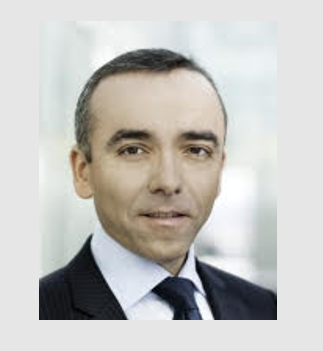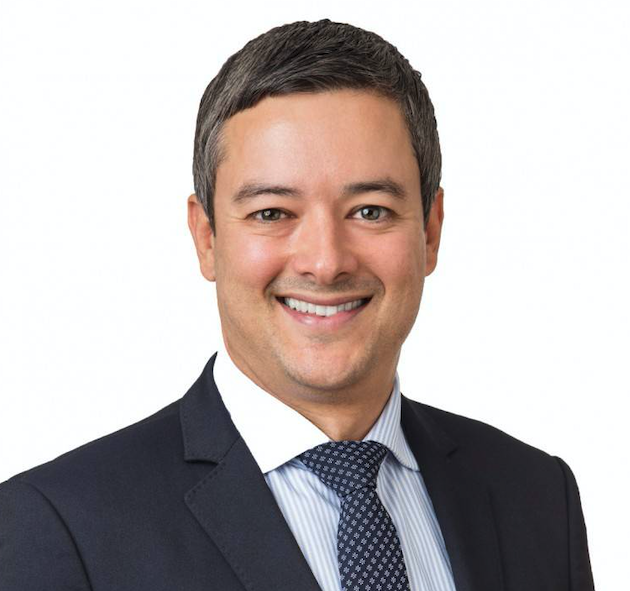The social security reform proposed by Bolsonaro’s government and its chances of success have the whole region in suspense. Luiz Ribeiro, CFA Managing Director Head of Latin American Equities of DWS, is an expert in the field who shared in an exclusive interview with Funds Society his vision on this and many other topics.
Ribeiro informs us that DWS has recently changed its recommendation for emerging markets to overweight, due to, on one hand, the change in the FED’s tone that is willing to maintain low rates for longer and, on the other, the growth expectations for emerging markets compared to developed markets that are currently at the end of the cycle.
“Market consensus for earnings growth in EM in general is 5% for 2019 and 12% for 2020. If you look at Latam is 22% this year and 10% next year. You don’t see that in developed markets any more, it is difficult to find”, emphasizes Ribeiro.
For Ribeiro, the situation in Brazil explains the fall in expected earnings in the Latin American region from 2019 to 2020, although he believes that it is very likely that the market consensus will change if the reforms are approved.
The Bolsonaro’s government change
Ribeiro stresses the important change that Bolsonaro’s new government has meant for the country since it is the first center-right government since the end of the dictatorship. “We have an ultraliberal economist leading the economy now, we never had that before. The economic team led by Paul Guedes is very strong and as such he has even been able to attract people from the previous government who are excellent technicians. The team is great with a liberal mindset and that makes a difference” explains Ribeiro.
Among other things, he highlights the importance that the new economic team gives to the fiscal deficit and to reducing the size of the state in general, which to Ribeiro, are the main challenges the Brazilian economy is facing. However, approving these reforms is not going to be an easy process, since, for example, the social security reform is a constitutional change that requires the approval of the 3/5 of the lower house.
In spite of everything, Ribeiro is optimistic and trusts the capacity of the Brazilians to react when they are against the wall. “Both this government and the previous one have done a very good job explaining the reasons why we need to do it. Among the population there is a growing consensus that this need to be done. “
Reforms and savings proposal
Spending on social security accounts for more than half of government expenditure and is growing at a good pace. “We believe that in a few years it can reach 100% if we do not stop that growth,” says Ribeiro. Thus, the reform presented by Bolsonaro is a very aggressive reform in terms of objectives, with expected savings (less expenses), even higher than what the market expected and above the 500.000 million reals of the reform presented by the previous government.
“The proposal considers a saving of about 1.1 billion reais for the next 10 years. It is a very comprehensive reform that, if approved, assumes that there will be no more worry in the next 10 years. Maybe it’s a negotiation tactic and this number will be diluted somehow. Anything above 600,000-700,000 million reals is great in our opinion. “
Among the challenges that the reform faces, Ribeiro points out the unfairness of the system that benefits a few, and that minority is very well represented in Congress and therefore can exert much pressure in the lower house. To this we must add that the government is using a new strategy that implies not giving anything in return in the negotiations and implies that the different parties give in for the common good. “We do not know how this will work, it is generating a lot of noise in the congress and the parties are mentioning they are not happy “
The reform needs 316 votes to be approved in Congress, and the market currently discounts that it is approved in June to which Ribeiro adds that “if it is delayed, the market in the short term will suffer”.
Privatizations and tax reform
But this is not the only important reform that the Brazilian government must carry out. Privatizations and tax reform are also very necessary, according to Ribeiro. Thus, he expects that a value of privatizations “between 90,000-100,000 million dollars in the next three years is feasible” despite the fact that Guedes has estimated the value of state companies at 1 billion reais.
Some of these privatizations have already been carried out such as the subsidiaries of Petrobras and the recent auction of 3 groups of airports, thank to which, the state obtained 2,000 million reais at a price 10 times higher than the minimum price and with a significant participation of foreign investors, what has been considered a success. But there’s still a lot to do.
Regarding the tax reform, the government’s objective is to simplify the system to reduce tax evasion, in addition to granting more collection power to municipalities and regional governments. Thanks to this, Ribeiro affirms that the government “is going to receive a lot of support from mayors and regional governments to do it. This also helps social security reforms because they will put pressure on their congressmen to vote in favor of the reforms. “
Equity markets
Specifically, and turning into the equity markets, Ribeiro estates that local investors are more optimistic than foreigners, as for example shows the increasing percentage of mutual funds portfolios that are allocated to equities. However, he points out the importance of investment as an element of growth and estimates that it will not pick up until the uncertainty regarding the reforms is mitigated, so he expects that “Brazilian economic activity will remain slow during the first half of the year and only pick up during the second half of the year. “
With respect to market valuations, the PE ratio of the Brazilian market is more or less in line with the historical average of the last 4 years, which for Ribeiro means “it is not a bargain, but it is not expensive”.
Ribeiro compares the current situation in Brazil to what happened in India after the elections and believes that there is a possibility of “rerate” in the Brazilian market. “Once the reforms are approved, the risk perception goes down and we have probably a higher growth that will lead the markets to trade at a higher PE than before. 13-15 times benefits is feasible if the reforms are approved.”” We will have a market that will trade at higher multiples together with higher earnings. That combination will lead to good returns for investors and the equity markets, we think “, concludes Ribeiro.
Regarding their preference for sectors, Ribeiro explains that because they are positive regarding the Brazilian economy, they like domestic companies. The consumer sector, “utilities”, and smaller players in the Fintech segment are among their favorites.
Finally, Ribeiro acknowledges that volatility will remain high in the region for the next 3-6 months, but in his opinion “exploring volatility is positive, bargains may appear from time to time. If you know how to navigate that volatility is not necessarily negative, “concludes Ribeiro





